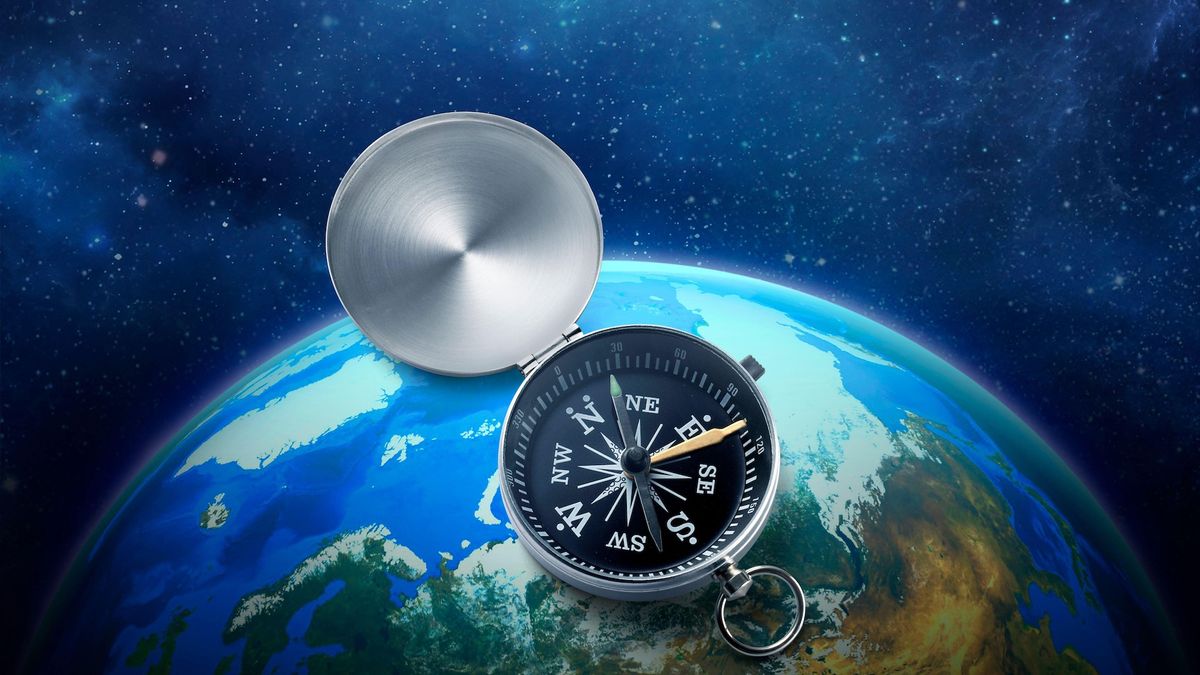Miles of air cover Earth. The boundary between Earth’s atmosphere and outer space, the Kármán line, is about 62 miles (100 kilometers) above the planet’s surface. However, about 99.9% of the mass of Earth’s atmosphere lies below a height of 30 miles (48 km), according to Anthony Broccoli, a professor of atmospheric science at Rutgers University.
Air is lighter than our bodies, but all those miles of air in the atmosphere amount to a lot of weight. “The total mass of Earth’s atmosphere is 5.1 billion billion kilograms, or 11.24 billion billion pounds,” Broccoli told Live Science. When it comes to a cylindrical column of air that is 1 foot (0.3 meters) in diameter, “its mass is 1,663 pounds [754 kilograms],” he said.
So why aren’t people crushed by Earth’s atmosphere?
In part, it comes down to the distribution of the pressure. Air flows around your body. Ultimately, the pressure from air “is exerted uniformly on all parts of a person’s body — it is not just a downward force,” Broccoli said.
Still, the pressure the atmosphere exerts uniformly on our bodies is not trivial. It amounts to approximately 14.7 pounds — about the weight of a large bowling ball — per square inch (1 kilogram per square centimeter), Broccoli noted.
Related: How much does a cloud weigh?
We are not crushed by air pressure because “our bodies have evolved over time to withstand the pressures,” said Michael Wood, chair and professor of quantitative sciences at Canisius University in Buffalo, New York. Broccoli added that “the air inside our bodies is at essentially the same pressure pushing outward, making the pressure forces balanced.”
This balancing of forces only happens if air can reach all sides of your body. If you push a vacuum cleaner’s nozzle against your hand and have it suck all the air that was pressing on your skin, the force your hand then feels is the weight of the air pushing against the vacuum hose, Christopher Baird, an associate professor of physics at West Texas A&M University, explained in a blog post.
Air gets thinner as you go up in elevation, so atmospheric pressure reduces with altitude as well, Wood said. This is why your ears can feel a “pop” in an airplane during ascents and descents — it can take some time before your internal air pressure matches the external air pressure, and the popping feeling results when the air pressure on the sides of the eardrum finally equalize, according to the American Academy of Otolaryngology–Head and Neck Surgery Foundation.
This internal pressure from our bodies “is one reason why we cannot travel in outer space without a spacesuit,” Wood told Live Science. “The pressure in space is essentially zero. Without the air pressure pushing down on the human body, the internal pressure inside the body would make the body inflate like a balloon until the pressure is released.”














